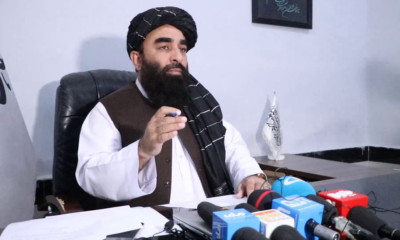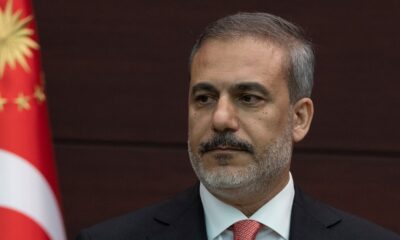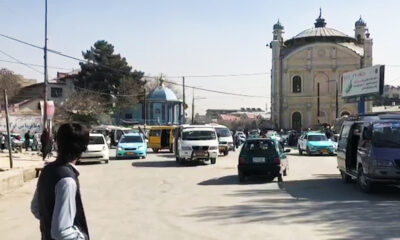Latest News
CIA scrambles for new approach in Afghanistan: NYT reports

As US troops withdraw from Afghanistan, the CIA is reportedly under intense pressure to find new ways to gather intelligence and carry out counterterrorism strikes in the country, the New York Times reported Monday.
But, according to the report, the spy agency has few good options.
The CIA, has been at the heart of the 20-year American presence in Afghanistan, will soon lose bases in the country from where it has run combat missions and drone strikes while closely monitoring the Taliban and other groups such as al-Qaeda and the Islamic State (Daesh).
However, the agency’s analysts are warning of the ever-growing risks of a Taliban takeover, the Times reported.
United States officials are in last-minute efforts to secure bases close to Afghanistan for future operations with one focus on Pakistan.
According to the Times, the CIA used a base there for years to launch drone strikes against militants in the country’s western mountains, but was kicked out of the facility in 2011, when US relations with Pakistan soured.
The Times reported that diplomats are also exploring the option of regaining access to bases in former Soviet republics that were used for the Afghanistan war, although they expect that Russia’s President Vladimir Putin would fiercely oppose this.
As the search continues, recent CIA and military intelligence reports on Afghanistan have been increasingly pessimistic, the Times reported.
Intel reports have highlighted gains by the Taliban and other militant groups in the south and east, and warned that Kabul could fall to the Taliban within years and return to becoming a safe haven for militants.
The Times reported that the scramble for bases illustrates how US officials still lack a long-term plan to address security in a country where they have spent trillions of dollars and lost more than 2,400 troops over nearly two decades.
William J. Burns, the CIA director, has acknowledged the challenge the agency faces. “When the time comes for the US military to withdraw, the US government’s ability to collect and act on threats will diminish,” he told senators in April.
Burns meanwhile visited Islamabad last month to meet with the chief of the Pakistani military and the head of the directorate of Inter-Services Intelligence, the country’s military intelligence agency.
In addition to this, Defense Secretary Lloyd J. Austin has had frequent calls with the Pakistani military chief about getting the country’s help for future US operations in Afghanistan, the Times reported.
But according to the report, Burns did not bring up the base issue during his trip to Pakistan, and the visit focused on broader counterterrorism cooperation between the two countries.
However, the Times reported that at least some of Austin’s discussions have been more direct.
Douglas London, a former head of CIA. counterterrorism operations for Afghanistan and Pakistan, told the Times that the agency was likely to rely on a “stay behind” network of informants in Afghanistan who would collect intelligence on the Taliban, al-Qaeda, the stability of the central government and other topics. But without a large CIA presence in the country, he said, vetting the intelligence would be a challenge.
In the short term, the Pentagon is using an aircraft carrier to launch fighter planes in Afghanistan to support the troop withdrawal. But the carrier presence is unlikely to be a long-term solution, and military officials said it would probably redeploy not long after the last US forces leave, the Times reported.
The United States is also stationing MQ-9 Reaper drones in the Persian Gulf region, aircraft that can be used by both the Pentagon and the CIA for intelligence collection and strikes.
But, according to the Times, some officials are wary of these so-called over the horizon options that would require plane and drones to fly as many as nine hours each way for a mission in Afghanistan, which would make the operations more expensive because they require more drones and fuel, and also riskier because reinforcements needed for commando raids could not arrive swiftly during a crisis.
The Times also stated that as Pakistan is a longtime patron of the Taliban, Islamabad is unlikely to sign off on any US strikes against the Taliban that are launched from a base in Pakistan.
The Times also stated that while some American officials believe Pakistan wants to allow US access to a base as long as it can control how it is used, public opinion in the country has been strongly against any renewed presence by the United States.
This comes after Pakistan’s foreign minister, Shah Mehmood Qureshi, said last month that the government would not allow the US military to return to the country’s air bases.
The Times reported that American diplomats have been exploring options to restore access to bases in Central Asia, including sites in Kyrgyzstan and Uzbekistan but that any negotiations with those countries are likely to take considerable time to work out.
According to the Times, US military and intelligence analysts are now in broad agreement that the Afghan government is likely to have trouble holding on to power.
They believe the Afghan security forces have been depleted by high casualty rates in recent years and that the announcement of the US withdrawal is a psychological blow that could weaken the force.
In addition, the Times reported that some current and former officials are skeptical that remote advising or combat operations will succeed.
Latest News
IEA: Special circle in Pakistan has launched mission to destabilize region
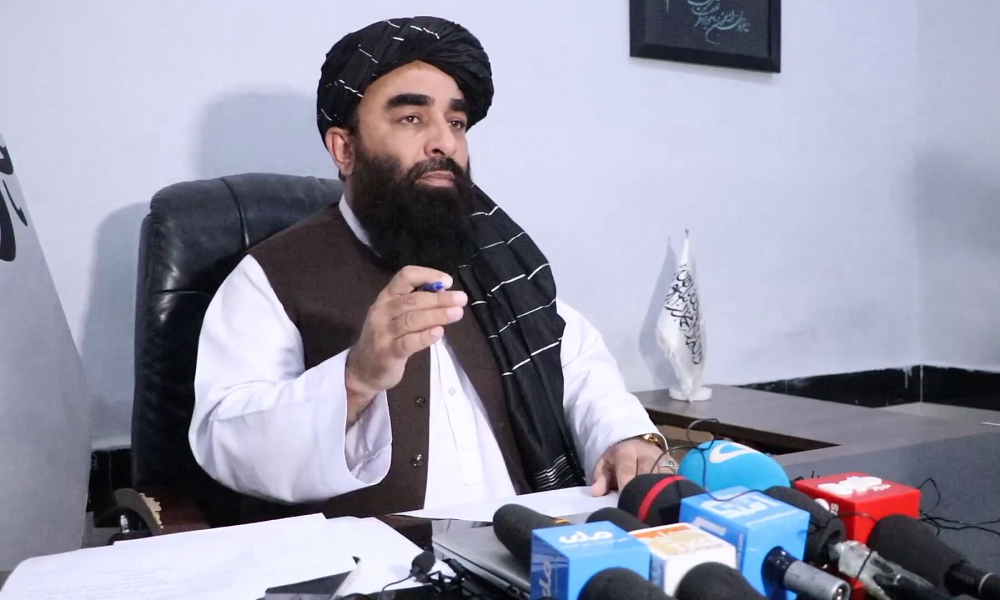
The spokesperson of the Islamic Emirate of Afghanistan, Zabihullah Mujahid, says that a special circle in Pakistan has launched a mission to destabilize the region following the recent escalation of conflicts between the two countries.
Speaking at a press conference in Kandahar province on Friday, Mujahid urged regional countries to put a stop to the “troublemakers.”
Mujahid stated that Afghan air forces had precisely targeted Pakistani military centers.
In response to a question about what position the Islamic Emirate would take if regional countries called for a halt to the war, he said that the Islamic Emirate seeks a peaceful resolution of issues and that they have previously held several rounds of negotiations and discussed the matters; however, the Pakistani side has not been prepared to resolve the issues through peaceful dialogue.
The spokesperson of the Islamic Emirate emphasized that the Pakistani side consistently attempts to fabricate pretexts for war and links its internal issues to Afghanistan.
Mujahid further stated that Pakistani aircraft are still patrolling Afghanistan’s airspace.
Last night, following retaliatory attacks by Afghan forces on Pakistani military facilities across the Durand Line, Pakistan’s military regime carried out airstrikes on locations in three Afghan provinces.
Mujahid confirmed that Pakistani forces bombed certain areas in Kabul, Kandahar, and Paktia.
He added that during the fighting that began Friday night, 13 Afghan soldiers were “martyred” and 22 others were wounded.
The Islamic Emirate of Afghanistan described the operation as retaliation for Pakistan’s previous attacks in Nangarhar and Paktika earlier this week.
The Afghan Ministry of National Defense also announced that in these clashes, Afghan forces killed 55 Pakistani soldiers, captured several others, and seized two military headquarters along with 19 security posts.
Latest News
Turkey launches initiative to diffuse Afghanistan-Pakistan tension
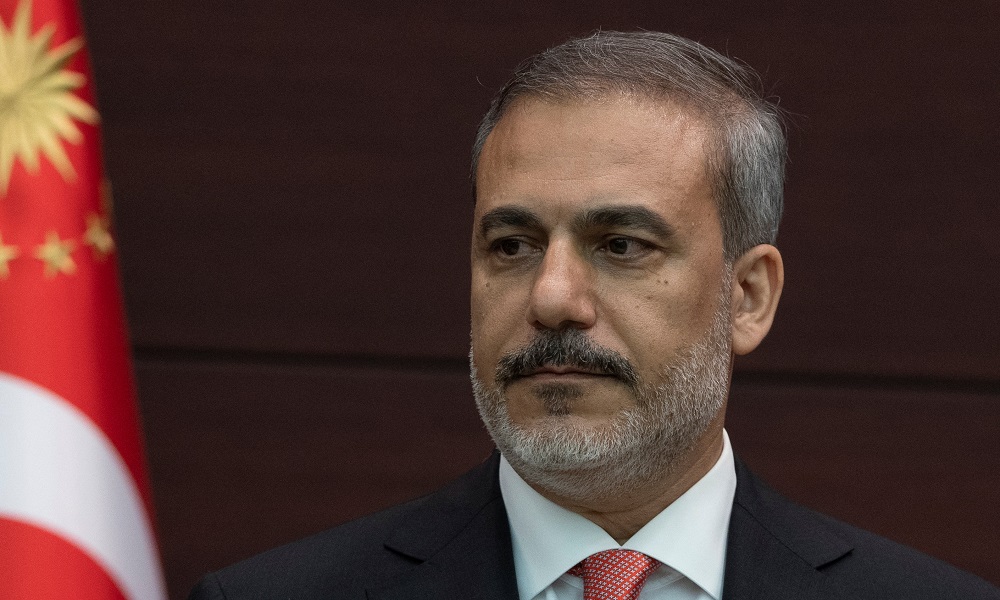
Turkish Foreign Minister Hakan Fidan on Friday exchanged phone conversations with both Afghan and Pakistani top diplomats as well as other regional prominent actors amid growing tension between the two neighboring countries.
Fidan spoke on the phone with Afghan Foreign Minister Amir Khan Muttaqi and Pakistani Foreign Minister Mohammed Ishaq Dar, Turkish media reported citing sources.
The initiative came after the two countries attacked each other.
Turkish media reported that Fidan also spoke with Qatari Foreign Minister Sheikh Mohammed bin Abdurrahman Al Thani and Saudi Foreign Minister Prince Faisal bin Farhan to discuss the recent developments between Afghanistan and Pakistan.
Latest News
Afghan Air Force conducts airstrikes in Islamabad, other cities
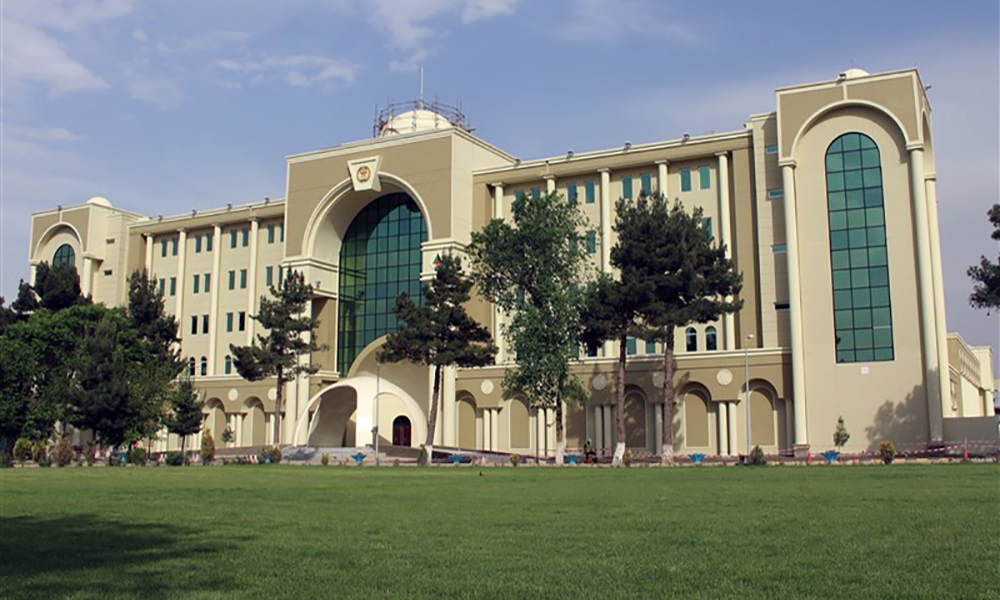
Afghan Air Force conducted airstrikes against Pakistani military targets in Islamabad and other cities on Friday, Afghanistan’s Ministry of National Defense said.
The strikes were carried out at 11:00a.m. near Faizabad in Islamabad, targeting a military camp, the Nowshera Cantt, Jamrud Military Colony, and Abottabad.
According to the Ministry, the operations successfully hit key military sites, centers, and facilities. The strikes were conducted in response to Pakistani military air raids carried out last night in Kabul, Kandahar, and Paktia.
-

 Latest News5 days ago
Latest News5 days agoRussia estimates up to 23,000 terrorists present in Afghanistan
-

 Latest News4 days ago
Latest News4 days agoIEA rejects Russia’s claims of foreign militants in Afghanistan
-
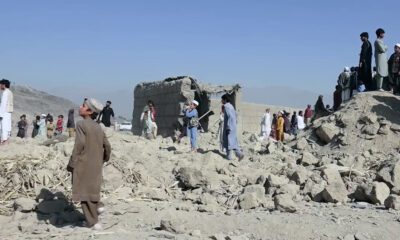
 Latest News4 days ago
Latest News4 days agoUNAMA reports civilian casualties from Pakistani airstrikes in Afghanistan
-

 International Sports3 days ago
International Sports3 days agoAFC Champions League Elite gears up for Round of 16 as league stage concludes
-

 Sport3 days ago
Sport3 days agoRichard Pybus appointed as head coach of Afghanistan’s national cricket team
-
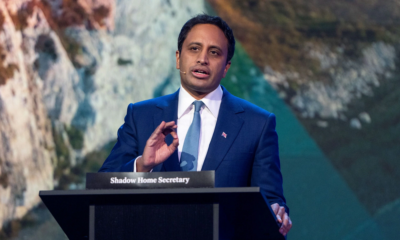
 Latest News5 days ago
Latest News5 days agoUK’s Reform party pledges visa ban affecting Afghanistan and five other states
-
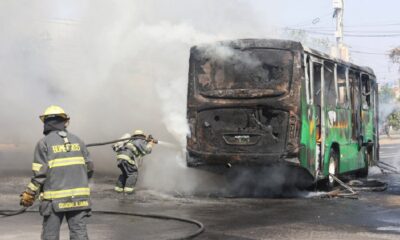
 World5 days ago
World5 days agoMexican military kills cartel boss ‘El Mencho’ in US-backed raid
-

 World2 days ago
World2 days agoIndia’s Modi backs Israel in address at Israeli parliament


